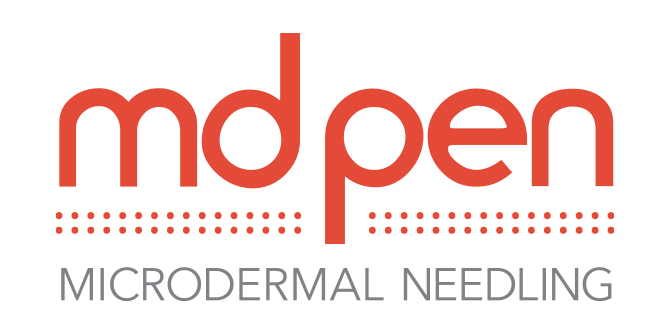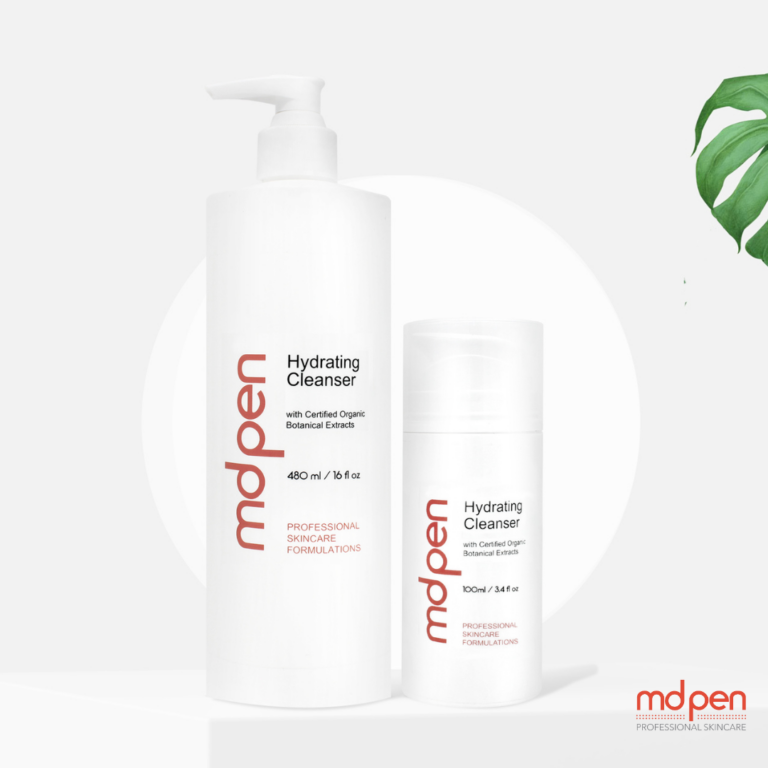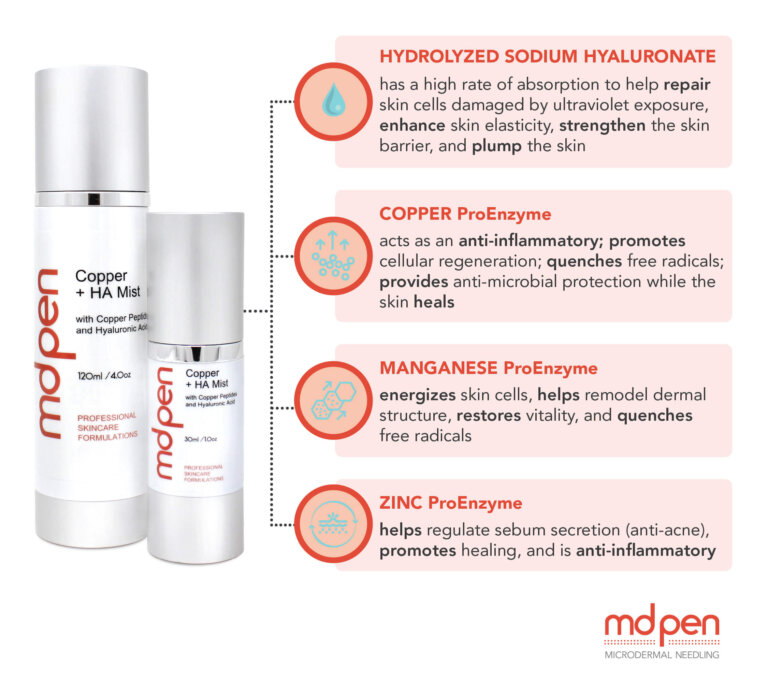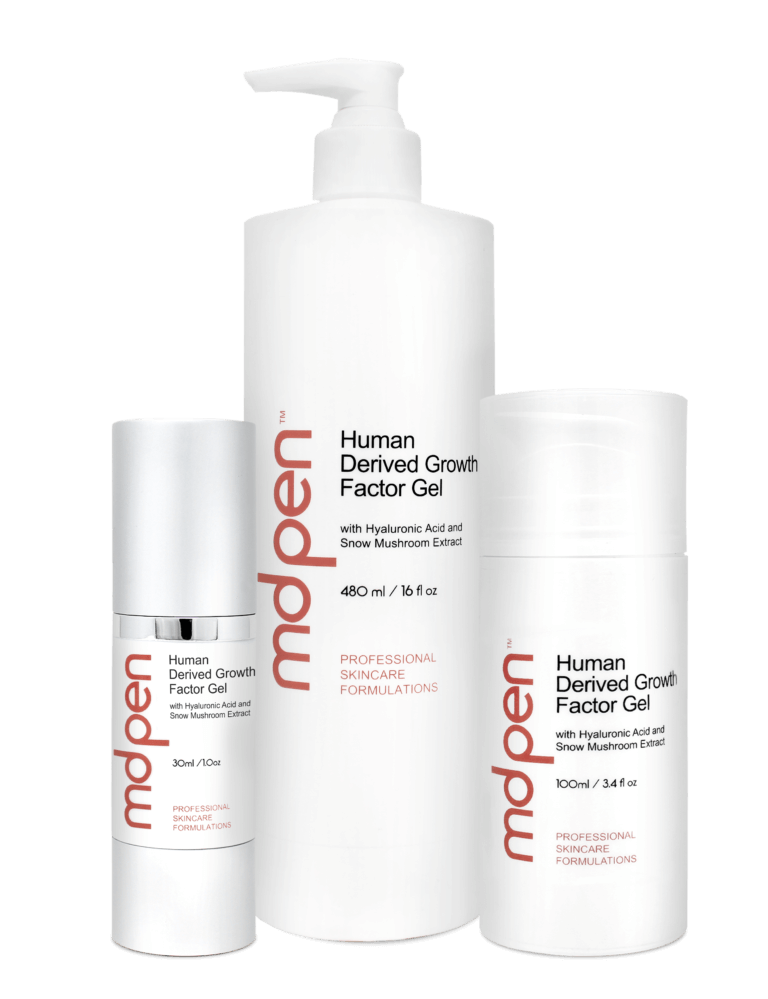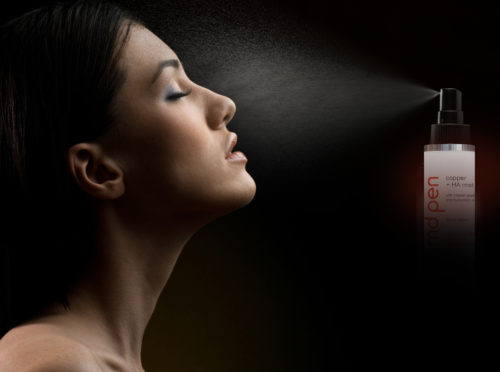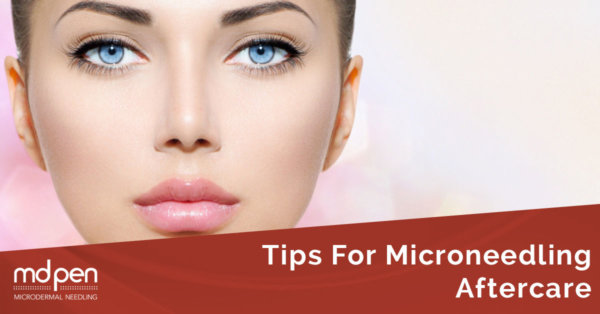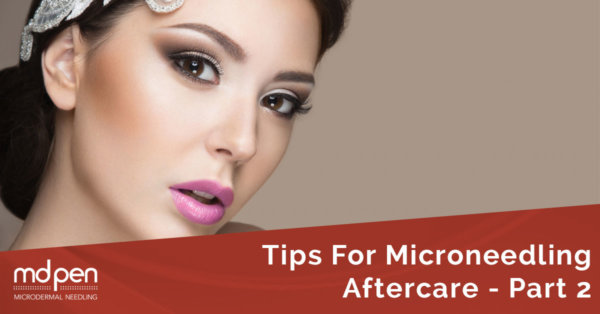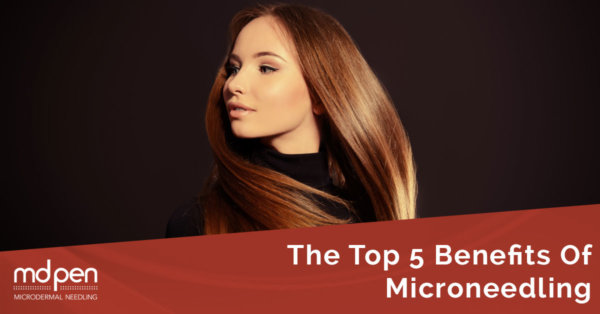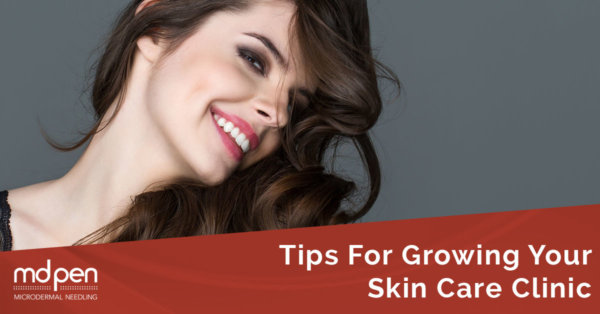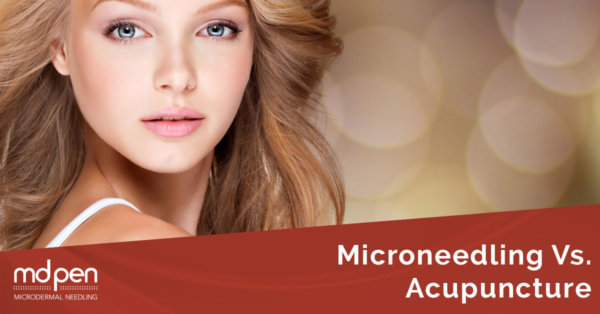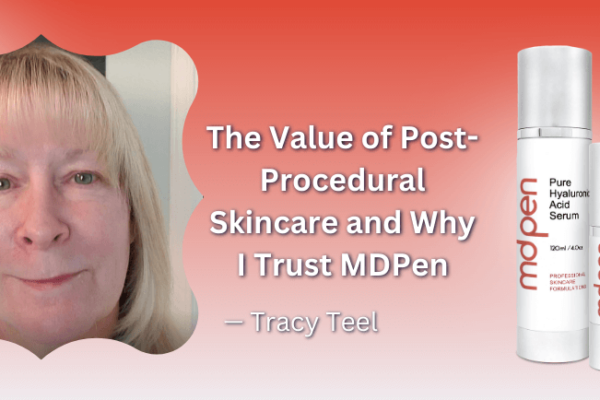MDPen Skincare: Common Misconceptions About Acne
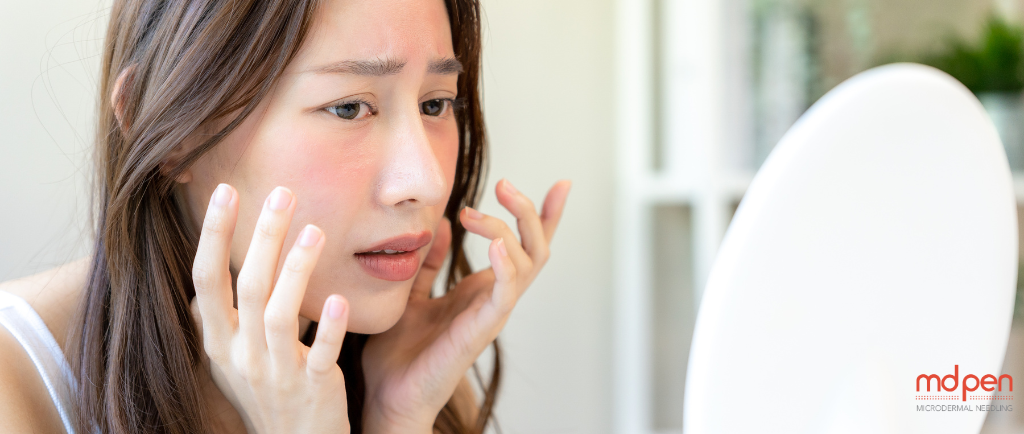
MDPen Skincare: Common Misconceptions About Acne

#1 When you have acne, you’re not clean. You have a hygiene issue, and your skin is dirty.
Cleanliness can help to prevent too much acne, but really, it’s coming from the way the skin is exfoliating itself inside the follicles. It retains too many dead skin cells, so it’s a disorder in the skin and not something that you’re causing.
You’re either acne prone or not; it is not that the skin is dirty and you can just wash it away. That’s not how it works. Actually, over-washing or over-exfoliating your skin is a major trigger for acne because it disrupts the skin barrier. When you’re constantly over-exfoliating and over-cleaning, you’re actually stimulating and making things worse.
The cause of acne is often genetics, so you need to focus a lot on barrier health, making sure your skin barrier is healthy, and that really helps the most with preventing and healing acne—absolutely!
Cleanliness just means washing your face morning and evening. If you’re doing that, then you have a proper cleanliness routine for your acne. MDPen’s Hydrating Cleanser is a wonderful gel-based hydrating cleanser—the go-to for oily and acne-prone skin types. When you’re looking at a full acne regimen, you don’t want everything that you’re using to be medicated. Cleansing with this am and pm will totally help with the cleanliness of your skin.
MDPen Hydrating Cleanser
MDPen Hydrating Cleanser is so good for people who have a disrupted skin barrier. It is really hydrating, so they will be able to wash their face without disrupting the barrier. It also has awesome ingredients for inflammation, which we see a lot of with acne. This cleanser has marigold, snow mushroom for hydration, and chamomile for calming.
If you notice that after you wash your face your skin feels itchy or too dry and tight, or if your products sting when you put them on—they shouldn’t. If they have some alpha hydroxy acid or if they’re medicated, it might sting a bit. But if you’re just putting on a moisturizer and it stings, then you probably have a skin barrier issue. That can be caused by your cleanser, especially if it has ingredients that are very stripping. Medicated ones or some that have acids or benzoyl peroxide in them can be a little too much. So you should alternate them, use them less frequently, and use more of your hydrating cleanser.
If you feel extreme tightness after you cleanse, that is not the cleanser for you. If you have oily skin, you’ll love that clean feeling—not tacky or sticky. The wonderful thing about a gel cleanser is that you can get that nice clean feeling of everything being removed without your skin feeling really tight.
For body breakouts, as we call it in the industry, a lot of people think that they have to have separate products, but all the same things that you use to treat acne in your face can be used on your body. Actually, your body can handle a lot more than your face can, so don’t be afraid to use all of your medicated acne products on your body.
Just a nickel-sized amount could be used for your whole body. Definitely see a skin specialist, whether an aesthetician who specializes in acne or a dermatologist, and let them know what type of body acne you have. You may have folliculitis or there may be other things going on, but they can make suggestions and treatments.
#2 Poor nutrition and acne are connected.
Nutrition comes up so much when talking about acne and preventing triggers. Unfortunately, there is very little evidence that nutrition can help with acne. For the average person, adding a supplement or changing their diet isn’t really going to help very much—or at least there’s no actual proof that it can.
Obviously, eating healthy is good, but food that can cause inflammation will make your acne worse. It’s not the food that causes acne directly; it’s the inflammation in your body.
If you ask most dermatologists, they will tell you that on a scientific level, perhaps it’s the hormones in dairy, too much salt, alcohol, gluten, sugar, or things in our diet that would naturally cause inflammation, and that could make acne more problematic.
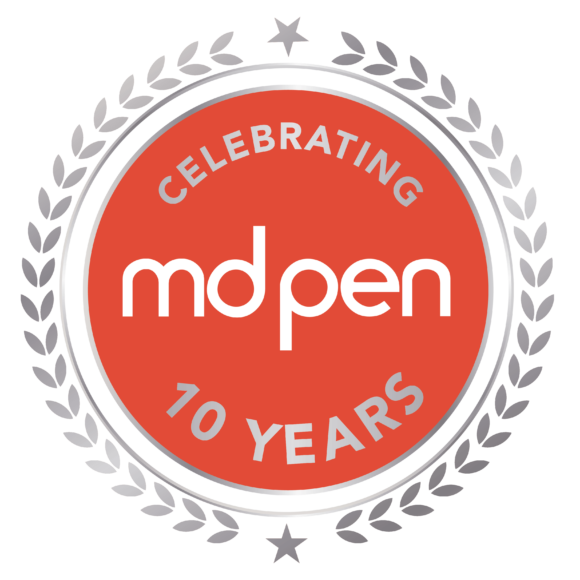
MDPen's very own brand educator, ALEXANDRA MOORE-BURNS, has been selected as 2023 BEST BRAND EDUCATOR by DERMASCOPE Magazine!
Congratulations, Alex!
If you keep a food diary, you can potentially pinpoint things that make you break out. It can be avocado, peanut butter, or peanuts. It just depends on the person, so keeping a food journal can be helpful. However, using blanket statements and saying specific foods cause or trigger acne is wrong because it does not apply to everybody.
Lifestyle choices can affect acne. If you’re working out or sweating, you want to make sure the sweat doesn’t stay on your skin because this can be a trigger for acne. Also, you don’t want to be exposed to sun and heat, which can be a trigger as well.
#3 The sun is going to help clear acne.
Another myth is that people think the sun will help clear acne, but it’s actually proven to make your acne worse. Acne sufferers definitely want to avoid the UV, as well as the heat from the sun.
Do not go to the beach to dry out your acne. We love the beach and it is great, but it’s not great if you have acne. Same with tanning beds, which are extreme for acne.
Talking about sports, if you’re not able to cleanse your face right away, make sure you have our Copper + HA Mist. This is going to be your best friend for everyone and everywhere. You’ll need this for working out, for teenagers, for outdoor hikers, for runners, for trips to theme parks—everywhere. This is your best friend for all of it.
QUESTIONS:
Are toners necessary and do they help with acne?
No, they’re not necessary. Copper + HA Mist can be a useful tool if you’re on the go, just to get your skin clean and hydrated quickly, but it’s not a need. It’s something that can be nice and helpful, but it’s definitely not something that you have to have.
Toners can definitely be a misconception. The main purpose of a toner, and the reason medical grade skin care lines came out with them, was to balance the pH level of your skin. But if you’re using a cleanser, don’t get obsessed with pH. Just use a cleanser that your skin feels happy with and that’s all you need to worry about.
The zinc in Copper + HA Mist helps control your oil and sebum production. So after cleansing your face, if you’re accustomed to using a toner, just cut that out and use the mist. You can use this mist for a million other things, too.
Can we use over-the-counter face masks to smoothen acne?
No, they’re not necessary. Copper + HA Mist can be a useful tool if you’re on the go, just to get your skin clean and hydrated quickly, but it’s not a need. It’s something that can be nice and helpful, but it’s definitely not something that you have to have.
Toners can definitely be a misconception. The main purpose of a toner, and the reason medical grade skin care lines came out with them, was to balance the pH level of your skin. But if you’re using a cleanser, don’t get obsessed with pH. Just use a cleanser that your skin feels happy with and that’s all you need to worry about.
The zinc in Copper + HA Mist helps control your oil and sebum production. So after cleansing your face, if you’re accustomed to using a toner, just cut that out and use the mist. You can use this mist for a million other things, too.
Again, this is not a need. Face masks are more of an experience—a moment for you to relax—and as long as it’s not causing any irritation, then it can be nice. The problem with masks is they tend to have a heavy amount of preservatives, so if you are sensitive to those, they could be a trigger for irritation. But if you find one that works for you, doesn’t cause skin issues or irritation, and makes you feel good—go ahead! Over-the-counter face masks are nice, but they’re not a need.
MDPen’s Human Derived Growth Factor Gel can be used as a mask for 20 minutes and is is acne safe. This is going to restore your skin barrier and help with inflammation and post-inflammatory hyperpigmentation.
What are the causes of cystic acne and how do we combat them?
Cystic acne depends on the grade. Aestheticians definitely can do a lot to help, but there is a reason we have dermatologists. Sometimes, you need a prescription.
People are afraid of Accutane, but it treats a lot of the causes of acne: the inflammation, bacteria—all of it. So Accutane can be a really helpful option.
Causes for cystic acne are going to vary from male to female skin. In adult females, we see cystic acne that is linked to hormones. We have the term “adult female hormonal acne.” Teenagers with cystic acne—young men in particular—could be affected by genetic hormonal acne.
If it’s an acne vulgaris grade four or five, you need to see a dermatologist who will decide whether oral antibiotics are necessary.
Oftentimes, dermatological intervention is very necessary if it’s a hormonal issue. Aestheticians can help with the inflammation and speed up the healing, steering you in the right direction as far as home care. But there are times that an aesthetician and a dermatologist need to work together.
A big part of being a good aesthetician is knowing when not to extract something. The dermatologist would need to see patients with cystic breakouts that have an infection released, followed by oozing blood.
Can washing the face with cold water help to minimize acne breakouts? Does salicylic acid really help?
Washing with cooler water helps with inflammation. On the other hand, hot water can be dehydrating and can disrupt your skin barrier. It can trigger or make your acne worse.
As far as salicylic acid, it helps keep your skin exfoliated and eases inflammation, too. Benzoyl peroxide—in cleansers rather than in a leave-on—can also be great for the body.
If you’re going with a salicylic product and you feel that you’re dry and dehydrated, you would want to go more toward a glycolic direction. Most people with these types of acne are oily, and salicylic is like their best friend.
Ice used on the face, like snow globes, is great for depuffing inflammation if you’re someone who likes that cold sensation. It also helps with calming down oil glands, too. It is super useful for our skin but it’s very temporary. It’s not a permanent solution. It’s not going to fix anything, but it will help temporarily.
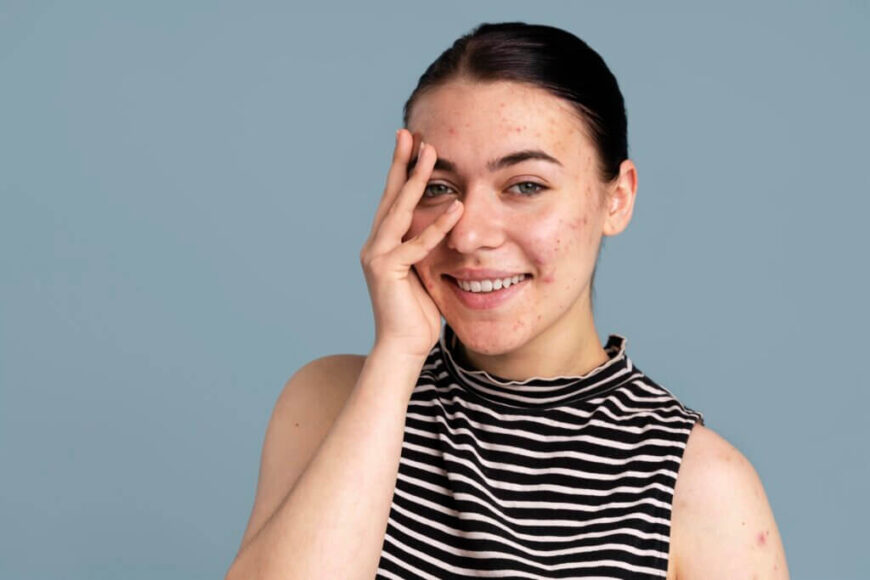
Can dermaplaning stop acne?
Do not dermaplane if you have acne. It would make the acne a lot worse. The only time you could dermaplane is if someone has a lot of blackheads on their face.
Going straight over an inflamed lesion is hard to watch. The patient may see the acne is flat, but a whole new issue has been created within the skin: The bacteria has spread all over the face and disrupted the hair follicle where the inflammation was present. So, get the skin as clear as possible before you consider dermaplaning.
As a skin care professional, should you ask your client about supplements they are taking and why?
Yes, you should definitely ask. It’s good to know what they’re taking because some things can trigger acne. It’s not as important as what they’re using on their skin, but it’s still good information just to see the whole picture of what they’re doing. It can be a part of figuring out what is a trigger for them.
What do you think about the charcoal mask?
It’s not a cure, but it’s something that can make your skin look nice and feel less oily. If it’s not causing any issues then it’s okay. There are medical grade skincare companies that carry charcoal masks that do work well, but you can overuse them too.
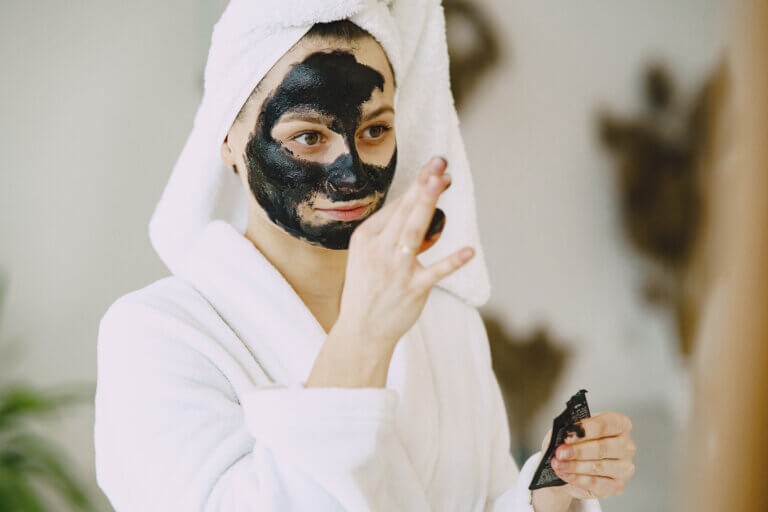
What can be done to help old acne scars?
Microneedling is the greatest for acne and acne scars. It’s helpful because essentially it’s for building collagen. Ice-pick acne scars lack collagen. There is damage in the collagen around the follicle, and you can build that up and smooth it out using microneedling.
If you have a higher Fitzpatrick, your pigment makes you likely to be unable to handle the high energy from laser treatments, but microneedling is safe for everybody. When you finally get someone’s skin clear and out of that acne zone, you can go in and treat old scarring with microneedling or radio frequency microneedling.
How often should you have a facial to help treat acne?
It really depends. Some people come in every week, but that’s not something you always need. With acne, there are so many things that can cause it, but there are also so many things that can help.
If patients come in more frequently, we can do different things and treat it in different ways, which is the best. For treating acne, you can help by reducing inflammation and supporting the skin barrier. Other times, you can focus on exfoliation.
If you’re just maintaining, it could be every month. Every four to six weeks is a good rule if you’re just trying to keep your skin clear. If you’re acne prone and it’s already clear but you’re experiencing a lot of breakouts, you should come in a little bit more often and have customized acne facials.
Do we use light therapy such as blue light?
They can be helpful, but keep it minimal and just stick with the things we know will work the most, like retinoids or chemical peels. For light therapy, as a provider, you will need to invest in one of the more expensive lights if you plan on using it in your office.
Blue light, of course, is great for killing the bacteria in acne. If I’m treating it with blue light, I still like to go over it with the red light afterward. So make sure you’re doing that and not just leaving the bacteria sitting on the skin after using the blue light.
Read more MDPen Cellular Renewal Reviews @beautytap.com



